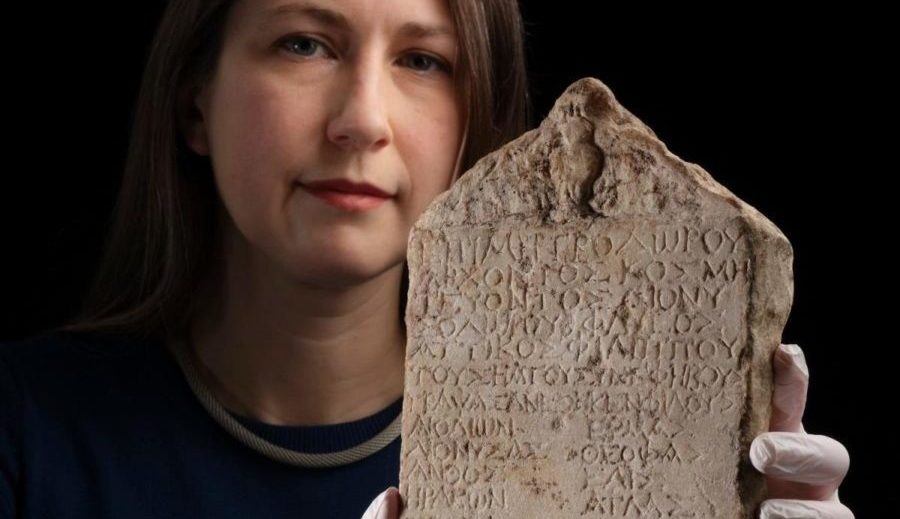A marble slab in storage turned out to be an ancient Greek yearbook, according to researchers in the United Kingdom.
The following written content by SHAUNEEN MIRANDA

Researchers in the United Kingdom have found that an ancient Greek inscription on a 2,000-year-old marble tablet is actually something resembling a yearbook for a graduating class, according to a new translation.
The inscription sat in the National Museums Scotland collection for over 130 years without being properly looked at until researchers discovered the document, according to Peter Liddel of the University of Manchester.
“This is one of a small number of inscriptions in Scotland, one of three ancient Athenian inscriptions in the city of Edinburgh, so it’s absolutely exciting,” Liddel told NPR’s All Things Considered.

Liddel is on the editorial committee of the project Attic Inscriptions Online, which published the new translation on May 31.
He referred to the inscription as a concise “class book,” which lists the names of young men within a cohort who finished their year-long civic and military training in what was called the ephebate.
Researchers listed 31 names. Some of them are nicknames, such as Theogas for Theogenes and Dionysas for Dionysodoros. Using their shortened names was unusual, the researchers said, and likely indicates the graduates had a sense of camaraderie. They believe the 31 names are a subset of the full class, which was probably about 100 men.
The end of the inscription translates to “of Caesar,” which refers to the emperor Claudius, the fourth ruler of the ancient Roman Empire from A.D. 41 to 54. The phrasing means the inscription was made during his reign.
Liddel said it’s not often researchers uncover new ancient Athenian inscriptions, especially in the U.K. Read more from NPR.





